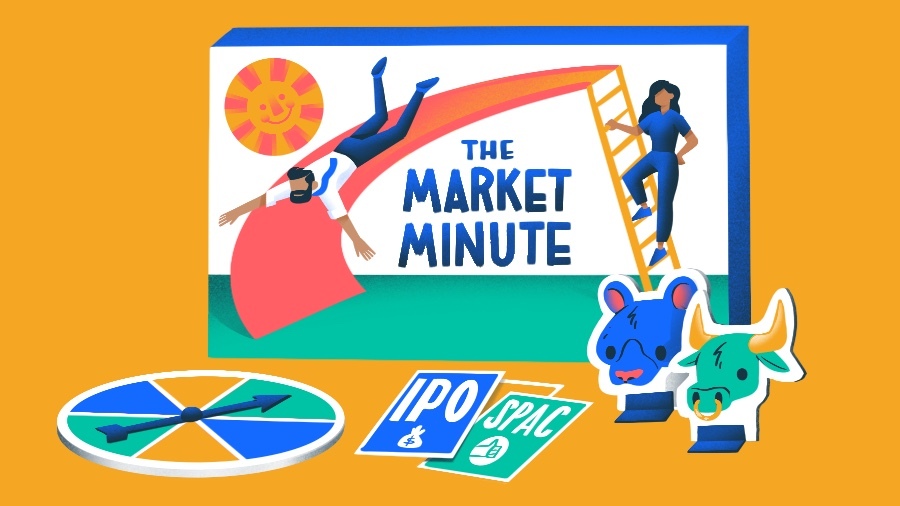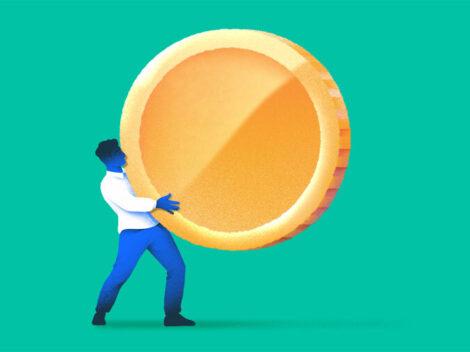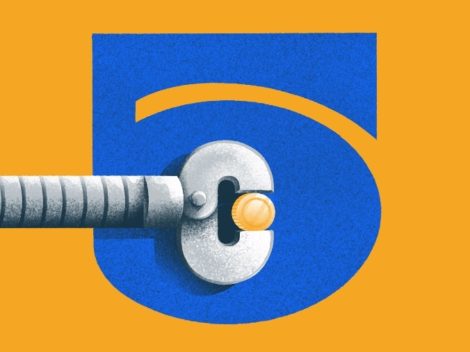If you’ve been online in the past few weeks, you may have heard about something called NFTs.
Subscribe to the Crunchbase Daily
They seem to be everywhere — as both the topic of serious discussion and the subject of memes.
I’ll be honest: I didn’t know what an NFT was when I saw people tweeting about it a few weeks ago. I was hastily Googling the term, trying to decipher jokes from various VC and finance meme accounts, and asking my colleagues about it during team meetings.
So you don’t have to subject yourself to the same process, I thought I’d write an explainer for my column this week (better late than never, right?).
In short, an NFT is a non-fungible token. Put more simply, it’s something like a digital collectible.
“I think the simplest description of an NFT or a way to think about it is it’s the first time you can actually establish and enforce ownership of a digital asset,” said Zeeshan Feroz, chief growth officer of crypto payments infrastructure startup MoonPay.
NFTs are a way of enforcing property rights on digital properties, Feroz said. The content of the NFT is tied to a token, and that token represents the title of the item.
When you buy an NFT, that ownership is recorded on the blockchain.
They are often compared to owning an original piece of artwork. There could be reprints of a painting you own, but you own the original painting and the title for it. NFTs are typically sponsored by the actual owners of the copyright, according to Louis Lehot, a partner at the law firm Foley & Lardner LLP.
To give a more recent, relevant example, Twitter CEO Jack Dorsey announced he’d auction off his first tweet as an NFT, with the proceeds going to charity. So, the buyer could buy the NFT, and then he or she owns it. Of course, anyone can go online and look at Dorsey’s tweet, but the owner of the NFT has claim to it.
Why now
NFTs became more or less mainstream in the past few weeks. Part of the reason is the general hype around bitcoin, according to Lehot. The price of bitcoin rose to $60,000 and Tesla announced it would buy $1.5 billion in bitcoin.
“The price of bitcoin went to 10x. We’ve been in a pandemic so everybody is at home, so they’re consuming art and music and they can’t go to concerts, they can’t congregate,” Lehot said. “So really your only way to connect with your artist or your musician is online, your financial assets. There’s really nowhere to go but the stock market, so bitcoin has taken off as people look for other ways to monetize. So you have this great confluence of digital currencies and NFTs.”
Lehot thinks that NFTs will be a way for a vast array of creators to monetize their digital content.
“I think NFTs are going to be something that media, celebrities from all walks of life, whether they be musicians or artists or other creators of collectible products, will use to monetize,” said Lehot.
“So with the advent of platforms like Spotify and Apple Music, and with other platforms kind of democratizing books … it’s too easy to acquire and use them and it’s become more and more difficult for creators of content to monetize what they have and what they do. So what I think NFTs present is an opportunity to excite fans and collectors to step up and distinguish themselves in their appreciation for that author or artist or singer.”
It’s important to note that NFTs are not securities and shouldn’t be treated as such. It can’t be ownership of a common enterprise where a buyer buys it with the expectation that the NFT will appreciate in value because of the efforts of someone else, Lehot said.
“The creator of the marketplace needs to make sure it’s not a security either. Because if it is, their marketplace needs to be a securities exchange and the registration process for that is a monster,” Lehot said.
The artist POV
From an artist standpoint, it’s important to understand what rights the artist is handing over when minting an NFT and selling it, according to Catherine Zhu, special counsel at Foley & Lardner. Different marketplaces have different allocations of those rights.
“Being really cognizant of that when you’re on the seller side is going to be important. When you’re on the buyer side, the legal considerations are a little different. You want to be concerned about what rights you’re receiving. Typically an NFT is an artist grant to the buyer … it’s a license to the buyer to the underlying content through owning the NFT.”
It’s something like buying and owning a one-of-a-kind signed Beatles record, but not owning the songs on the record. The buyer owns the signed record, but can’t reproduce and sell the songs.
In other words, the artist owns the underlying content.
If you’re looking to buy an NFT, one thing to be aware of is authenticity, according to Zhu. Right now, there’s a lot of room for “the equivalent of a counterfeit,” so buyers should make sure they’re going to a reputable seller or marketplace.
So that’s NFTs in a nutshell. If you have questions, comments, or bought one and want to share a photo, I’m still sophiak@crunchbase.com.
Illustration: Dom Guzman

Stay up to date with recent funding rounds, acquisitions, and more with the Crunchbase Daily.





![Illustration of a guy watering plants with a blocked hose - Global [Dom Guzman]](https://news.crunchbase.com/wp-content/uploads/quarterly-global-3-300x168.jpg)
67.1K Followers